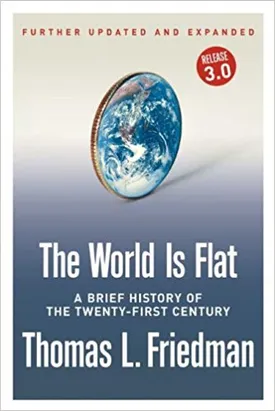Thomas Friedman
Thomas Friedman is an American journalist, author, and three-time Pulitzer Prize-winner who has worked as a foreign affairs columnist for the New York Times since 1995. He is known for pushing the envelope by presenting readers with new and controversial topics and challenging readers to think differently. He has written four international bestsellers, won numerous awards including the Oversees Press Club Award and the National Jewish Book Award, and was recently awarded the prestigious Arthur Ross Media Award from the American Academy of Diplomacy.
Friedman has been a key figure in reporting, analyzing and commenting on events in the Middle East since 1982, when he was first hired by United Press International for his knowledge of the region. In the following years, he worked for the New York Times covering business, the Gulf War, and the Middle East. Over the decades, he has grown to become an expert in the field, being one of the first to report on the emerging markets of China, India, and the rest of Asia, and using them to strengthen his theories.
Friedman’s first book, "From Beirut to Jerusalem," was published in 1989 and quickly went on to become a New York Times’ best-seller. It was based on his experiences living through the Lebanese Civil War and his reporting on the Middle East conflict later in life. It was the recipient of the 1989 National Book Award, and in the following years, he produced two more books, both of which were acclaimed. His first book set the standard for his writing, which is both analytical and provocative, and it also firmly placed him in the limelight.
Friedman’s second book, "The Lexus and the Olive Tree," published in 2000, was equally successful, with the book being used as a textbook in schools around the world. This book looked at globalization and the challenges that businessmen and the world's superpowers face in the 21st century. His third book, "The World Is Flat: A Brief History of the 21st Century," published in 2005, delved deeper into the widening gulf between the ”haves” and ”have-nots.” He provided a platform for discussion about the old and new worlds, questioning ”the assumptions, ideas and values of the developed world” and what that meant for our future.
Friedman’s fourth book, "Hot, Flat, and Crowded: Why We Need a Green Revolution – and How It Can Renew America" was published in 2008 and provided his take on the need for sustainability. During a time when the world was still dealing with the consequences of climate change, Friedman wrote a book that argued that the sustainability agenda was both a visionary opportunity to the betterment of the world, and a tool for economic growth.
Throughout his career, Thomas Friedman has become one of the leading voices of our times, with his cutting-edge analysis of global events and his passion for the subject. His books have been translated into more than 25 languages, and they are widely considered essential reading for anyone interested in global affairs. He is also widely followed by an international audience of curious minds who look to him as an expert on a variety of topics, including geopolitics, security, and globalization. It is safe to say that today he holds a rare position of authority that few other authors can match.

